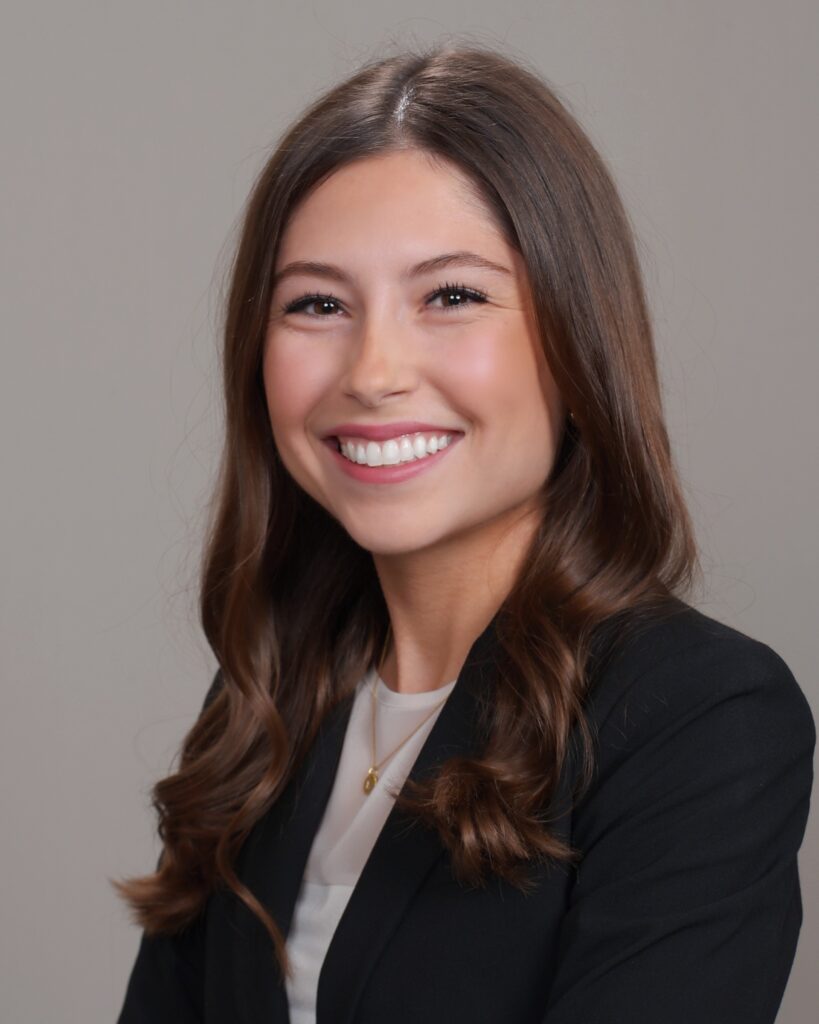
For the past 24 years, IRETA has hosted the Scaife Medical Student Fellowship in Substance Use Disorders, a three-week intensive learning experience that focuses on substance use, addiction, and addiction treatment. This year’s program was comprised of two sessions in June and July that included two weeks of virtual learning sessions and one week of in-person learning.
Lauren Druml, a member of this year’s June cohort, wrote about her experience in the program and the impact participation will have on her medical career.
The Scaife Medical Student Fellowship Program Experience
By Lauren Druml
As a medical student, I was fortunate to participate in the Scaife Medical Student Fellowship Program, an immersive experience designed to provide future healthcare providers with a comprehensive education about addiction. Throughout the program, we attended didactic lectures and participated in a diverse array of activities centered around Substance Use Disorder (SUD). Collaborating with experienced addiction medicine professionals, individuals in recovery, and like-minded peers, we shared a common commitment to addressing the multifaceted challenges associated with addiction.
One of the most enriching aspects of the Scaife Medical Student Fellowship Program was learning from individuals in recovery. Throughout this program, we had the opportunity to listen to several speakers who volunteered to share their personal stories of overcoming addiction. Their firsthand accounts were inspiring and powerful, offering a unique perspective on the struggles faced by those battling addiction. The openness and honesty of these individuals deepened my understanding of the complexities of addiction and left a lasting mark.
In addition to hearing impactful stories of those affected by addiction, the Scaife program provided us with informative lectures that delved deeply into the intricacies of SUDs. Under the expert guidance of professionals in the field, we explored a diverse array of topics, including harm reduction strategies, medication treatments, and the significance of motivational interviewing (MI). After learning about MI, we had the opportunity to practice our skills with standardized patients, further refining our abilities as compassionate and competent healthcare providers.
Beyond the classroom, the Scaife program took us on eye-opening, in-person visits to various rehabilitation centers, a halfway house, and an Alcoholics Anonymous (AA) meeting. These real-life encounters exposed us to invaluable support systems and resources that aid individuals on their journey to recovery.
One of these impactful visits was to an organization called POWER, dedicated to assisting women in early recovery. Here, we had the privilege of hearing firsthand accounts from women at different stages of their recovery journeys. Another insightful visit was to Gateway Rehabilitation Center, where we shadowed patients during their group therapy sessions. In the safe space of group therapy, patients openly shared their pasts, dreams, fears, and hopes, allowing us to intimately connect with their experiences and view addiction from a different lens. We also visited Renewal, a mental health and addiction treatment center, where we had the opportunity to engage with incarcerated individuals and gain valuable insights into their perspectives regarding addiction.
Through these immersive experiences, my perspective on addiction underwent a profound transformation, as I came to appreciate its complex intersections with medical, psychological, and social factors. It became evident that addressing addiction goes beyond merely focusing on its medical aspects; a comprehensive approach necessitates an understanding of the social and psychological elements that contribute to the struggles faced by those affected. These visits broadened my knowledge of addiction and instilled in me a sense of empathy and compassion that I will carry forth in my practice as a healthcare provider.
The Scaife Medical Student Fellowship Program provided informative lectures, enlightening perspectives, and real-life encounters that will undoubtedly guide my future medical career. It not only enhanced my understanding of Addiction Medicine but also instilled in me a stronger sense of responsibility to challenge addiction stigma and advocate for better support systems and awareness. Inspired to be a catalyst for change, I aim to contribute to the advancement of addiction medicine, promoting a future where support and understanding are at the forefront of addiction care. This life-changing experience has motivated me to make a positive impact on the lives of those affected by addiction, and I am committed to carrying its lessons with me.
Lauren Druml is a fourth-year medical student at Drexel University College of Medicine. She attended the June 2023 session of the Scaife Medical Student Fellowship with five other medical students and four pharmacy students. In her final presentation, she focused on the cutaneous manifestations of drug misuse, delving into the skin complications linked to various drugs. Lauren is from Foster City, California. She has a special interest in caring for patients with SUD and advocating for underserved patient populations. Outside of medicine, Lauren enjoys hiking, playing volleyball, and traveling.





